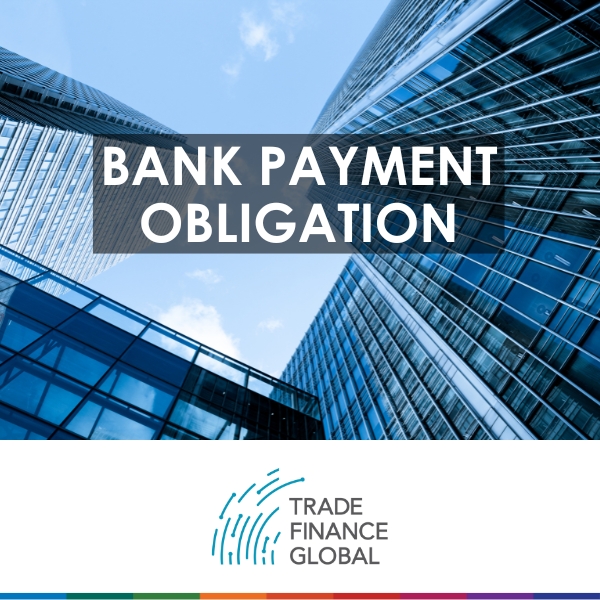
Do you want to know how access to trade finance can increase your cross-border imports and exports? Explore our Trade Finance hub for practical tools.
Are you a treasury or operations manager looking to mitigate the risks and efficiently manage your business’ cash flow? If so, check out our Treasury Management hub.
Whether you want updates from infrastructure support to cross-border transactions or clearing house operations to processing techniques, you can find all on our Payments hub.
Ready to to increase your imports / exports to guarantee the payment and delivery of goods? Find out more about LCs here.
Whether you’re transporting goods, or learning about supply chains, warehousing, transportation and packaging, we’ve got you covered.
Need to know which International Commerce Term is right for your needs? Explore our curated guides from shipping expert Bob Ronai.
Prioritising sustainable supply chains? Building inclusive trade? Working towards the UN’s 2030 SDGs? Read the latest on global sustainable standards vs green-washing here.
Heading into international markets? From the correct documentation to standardisation, here’s what you need to know for a streamlined customs clearance process.
TradeTech is rapidly evolving to help reduce some of the biggest challenges when it comes to trade. Keep up with these innovations here.
The issues feature experts across the industry on the latest developments with specific themed and regional editions.
Insights by the industry, for the industry. These include thought leadership pieces, interview write ups and Q&As.
Working closely with industry experts and trade practitioners we provide inclusive educational guides to improve your technical knowledge and expertise in global trade.
We undertake qualitative and quantitative research across various verticals in trade, as well as create reports with industry association partners to provide in-depth analysis.
Subscribe to our market-leading updates on trade, treasury & payments. Join the TFG community of 160k+ monthly readers for unrivalled access in your inbox.
Welcome to Trade Finance Talks! On our series we hear from global experts in trade, treasury & payments.
Experience the true nature of the TFG community through panel discussions on the latest developments - engage with questions.
Join us as we interview leaders in international trade, treasury, payments and more! Watch and learn.
We partner with industry conferences around the world to ensure that you don’t miss out on any event; in person or online, add to your calendar now.
Get involved in our most important campaign of the year, celebrating the achievements of women in our industry and promoting gender equity and equality.
Our excellence awards in trade, treasury, and payments are like no other. You can't sponsor them, and they're independently judged. They are the most sought-after industry accolades.
Trade finance is a tool that can be used to unlock capital from a company’s existing stock, receivables, or purchase orders. Explore our hub for more.
A common form of business finance where funds are advanced against unpaid invoices prior to customer payment
Also known as SCF, this is a cash flow solution which helps businesses free up working capital trapped in global supply chains.
A payment instrument where the issuing bank guarantees payment to the seller on behalf of the buyer, provided the seller meets the specified terms and conditions.
The release of working capital from stock, through lenders purchasing stock from a seller on behalf of the buyer.
Due to increased sales, a soft commodity trader required a receivables purchase facility for one of their large customers - purchased from Africa and sold to the US.
Purchasing commodities from Africa, the US, and Europe and selling to Europe, a metals trader required a receivables finance facility for a book of their receivables/customers.
An energy group, selling mainly into Europe, desired a receivables purchase facility to discount names, where they had increased sales and concentration.
Rather than waiting 90 days until payment was made, the company wanted to pay suppliers on the day that the title to goods transferred to them, meaning it could expand its range of suppliers and receive supplier discounts.

Trade Finance Global Trade Finance Global (TFG) assists companies with raising debt finance. While we can access many traditional forms of finance, we specialise in alternative finance and complex funding solutions related to international trade. We help companies to raise finance in ways that is sometimes out of reach for mainstream lenders.


Informing Today’s Market, Financing tomorrow’s Trade.
Download our free Trade Finance Guides
A bank payment obligation (BPO) is a framework which is endorsed by the International Chamber of Commerce (ICC) and SWIFT, which stands as a middle ground between traditional Letters of Credit (LCs) and open account trade.
Global trade is challenged by fraudulent activity, market dynamics, and liquidity within many companies. A Bank Payment Obligation is an e-commerce (paperless) solution which offers a form of risk mitigation between suppliers and buyers via a bank.
Simply put, a BPO is an irrevocable document given from a buyer’s bank to a supplier or seller’s bank, where an agreement is made to pay a specified amount of money on an agreed future date under the condition of electronic matching of data.
As with Letters of Credit which are governed by the UCP600, the Uniform Rules for Bank Payment Obligations ICC publication No. 750. (URBPO) are the rules adopted by the International Chamber of Commerce for Bank Payment Obligations.

CAPTION: Where a BPO fits in the Open Accounts (OA) and Letters of Credit (LC)
The BPO and Letter of Credit (LC) are quite similar for the following reasons: